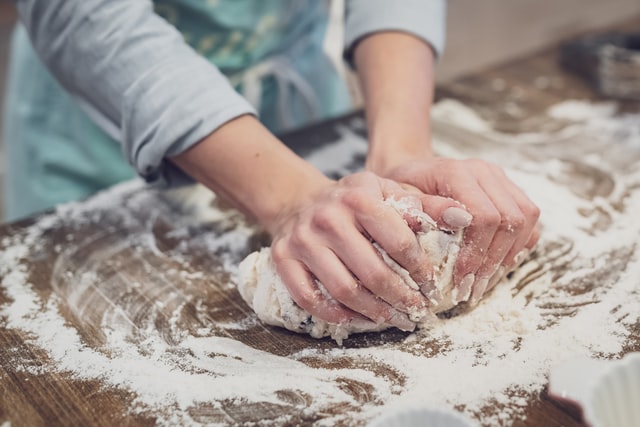It may be a custom in your kitchen to lick the spatula after combining cookie or cake ingredients, but is it safe?
The solution is simple: Do not sample the baked goods until they have finished baking.
Multiple food poisoning incidents throughout the years have shown that consuming this unfinished delicacy poses a risk. Beth Czerwony, RD, a registered dietitian, discusses why tasting uncooked dough or batter should not be part of your culinary routine.
Should uncooked dough or batter be consumed?
Let’s simplify this: No.
Consuming undercooked dough or batter might cause serious illness. The main danger comes from the flour. That’s correct… flour This seemingly harmless powder should be considered a potentially hazardous “raw” food.
Grains are harvested and processed to create the flour that is sold in supermarkets. During processing, microorganisms that may have been picked up in the fields are often not eliminated.
A large number of cows and other animals dwell near fields, and they do what animals do while meandering through nature. This results in probable contamination of the grain used to make flour. E. coli and salmonella are two of the bacteria that may be present.
The high heat involved in baking reduces the risk of becoming ill from the flour, thus it is safe to consume baked items.
Czerwony states that boiling, baking, roasting, microwaving, and frying are common food preparation methods that kill bacteria. “However, because the uncooked dough does not undergo these processes, it may be contaminated. That is concerning.”
An additional danger: raw eggs
In most cookie and cake recipes, raw eggs increase the danger factor. Salmonella may lie inside eggs, transmitted by birds that carry the infection. The bacteria may also exist on the shell’s thin exterior owing to bird droppings.
Children, pregnant women, individuals with weak immune systems, and older persons are more susceptible to salmonella illness from raw eggs.
Czerwony states, “Whenever you ingest or touch raw eggs, you raise your risk of salmonella illness.” You should be very careful and take measures to prevent contamination as much as possible.
What happens if uncooked dough or batter is consumed?
By nibbling on raw dough or licking batter before it enters the oven, you expose yourself to the onset of swiftly occurring adverse effects. Within six hours after ingestion, signs of salmonella illness may appear. Typically, E. coli illness takes around three days to manifest.
Symptoms of food poisoning may last up to a week and include:
- Diarrhea that may be either watery or bloody.
- Abdominal cramps.
- Vomiting.
Infections with E. coli may potentially cause hemolytic uremic syndrome (HUS) and renal failure.
Since 2016, the Centers for Disease Control and Prevention (CDC) have identified three multistate outbreaks of E. coli linked to flour or cake mixes. The outbreaks caused 100 cases of sickness and 27 hospitalizations. Many of those afflicted reported consuming uncooked dough or batter.
(As an aside, cookie dough used in ready-to-eat items, cookie dough ice cream is the most apparent example, has been treated to eradicate hazardous microorganisms.)
Is dough OK for Christmas ornaments?
The danger of exposure to E. coli in uncooked flour is so high that the CDC advises against allowing children to use the homemade dough for play or crafts, including dough for Christmas decorations.
Even if your child does not consume the dough, they may put their hands in their mouths after handling it, so transmitting any current germs.
Guidelines for preparing dough or batter
Follow these precautions to keep safe while baking or cooking with wheat and eggs:
- Do not taste or consume uncooked dough or batter used to make food (cookies, cakes, pancakes, etc.) or crafts (dough-based holiday ornaments).
- Follow the recommendations for cooking temperature and duration to eliminate microorganisms.
- Keep uncooked ingredients such as flour and eggs away from other foods. Be very cautious while handling flour, since the powder may quickly spread and possibly contaminate neighbouring objects.
- After use, thoroughly clean your food preparation area, dishes, and utensils.
- After handling uncooked foods, you should wash your hands.
Czerwony recommends resisting the impulse to lick the beater or spatula while mixing up baked products. Allow that treat to bake fully, and then enjoy it after it emerges from the oven. (Of course, allow it to cool.)
